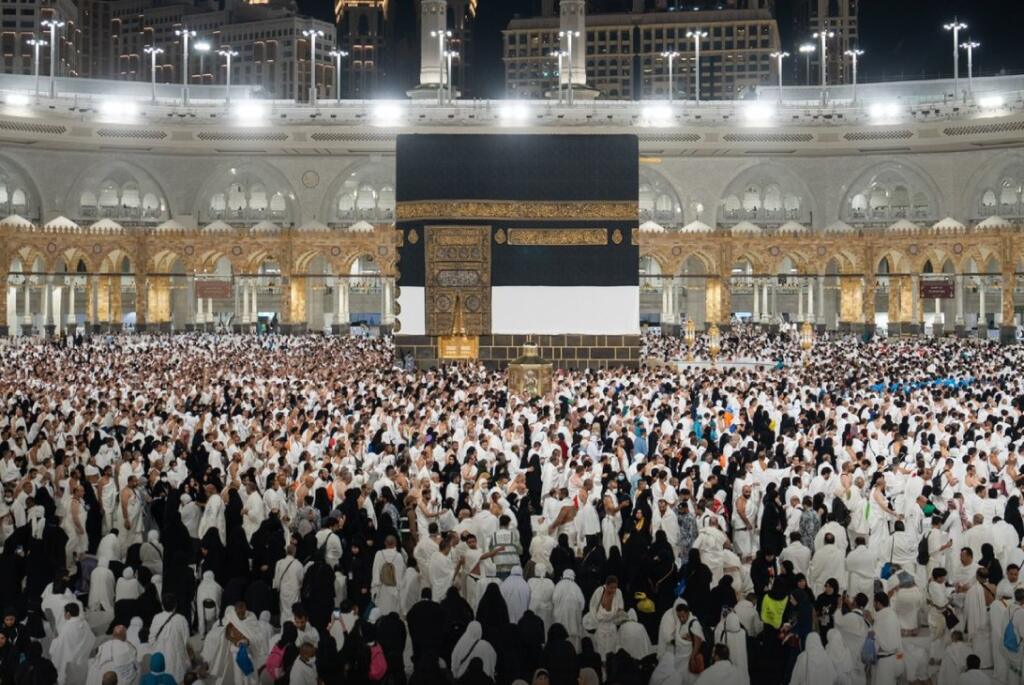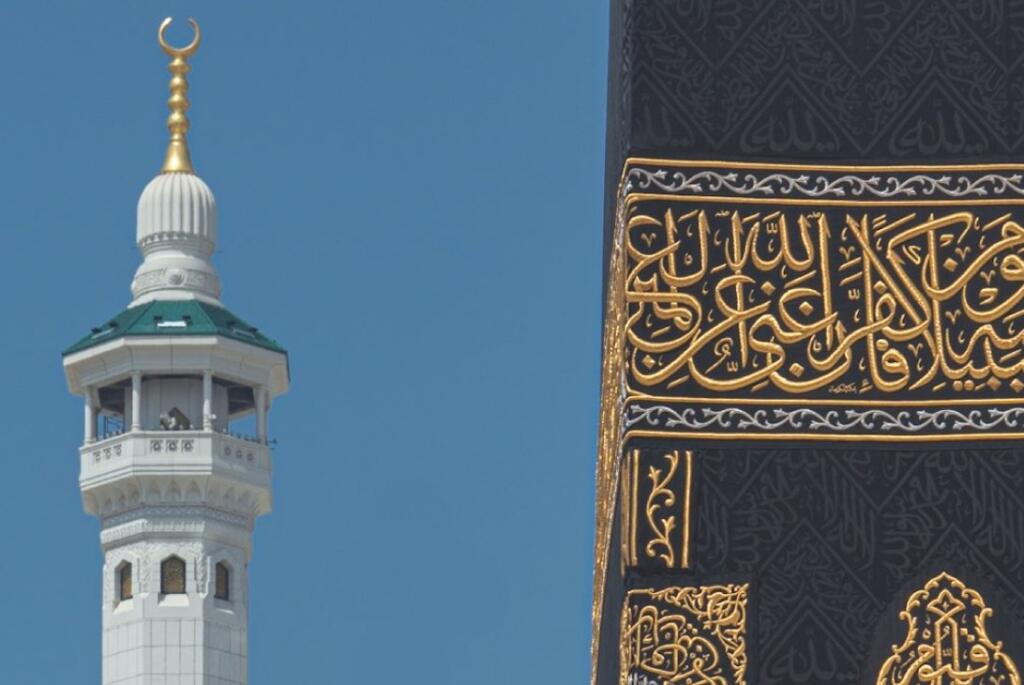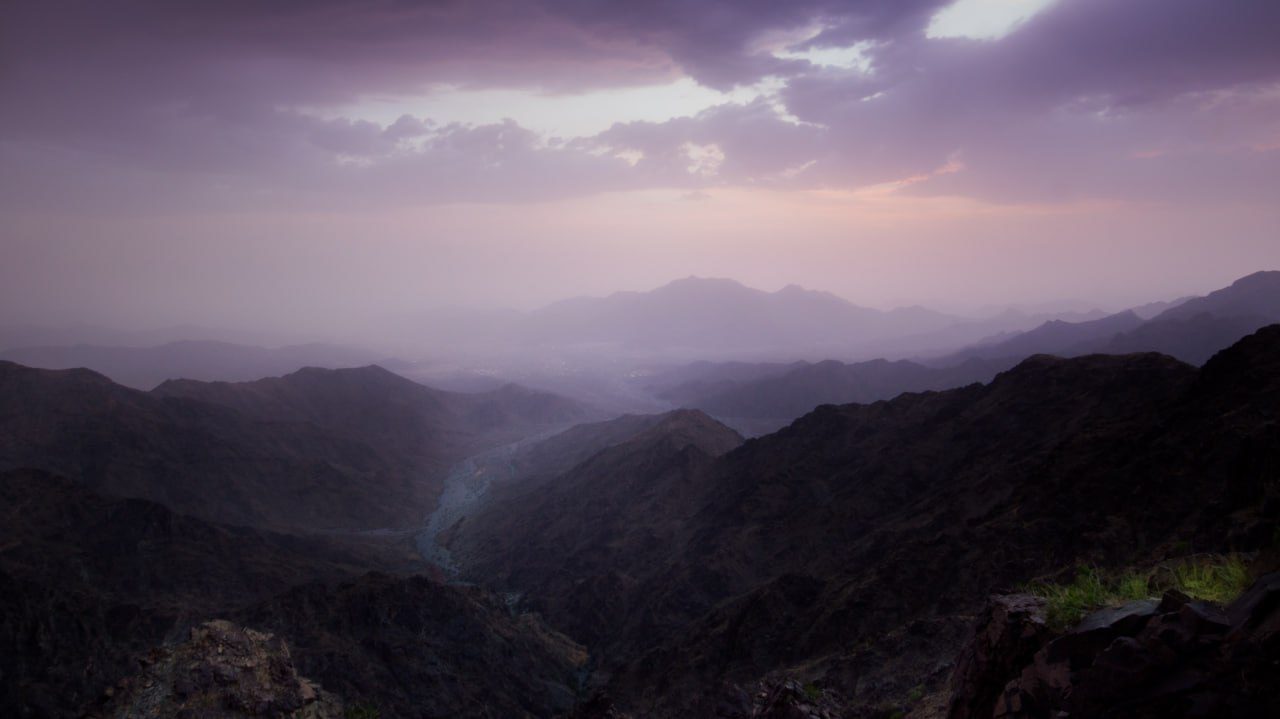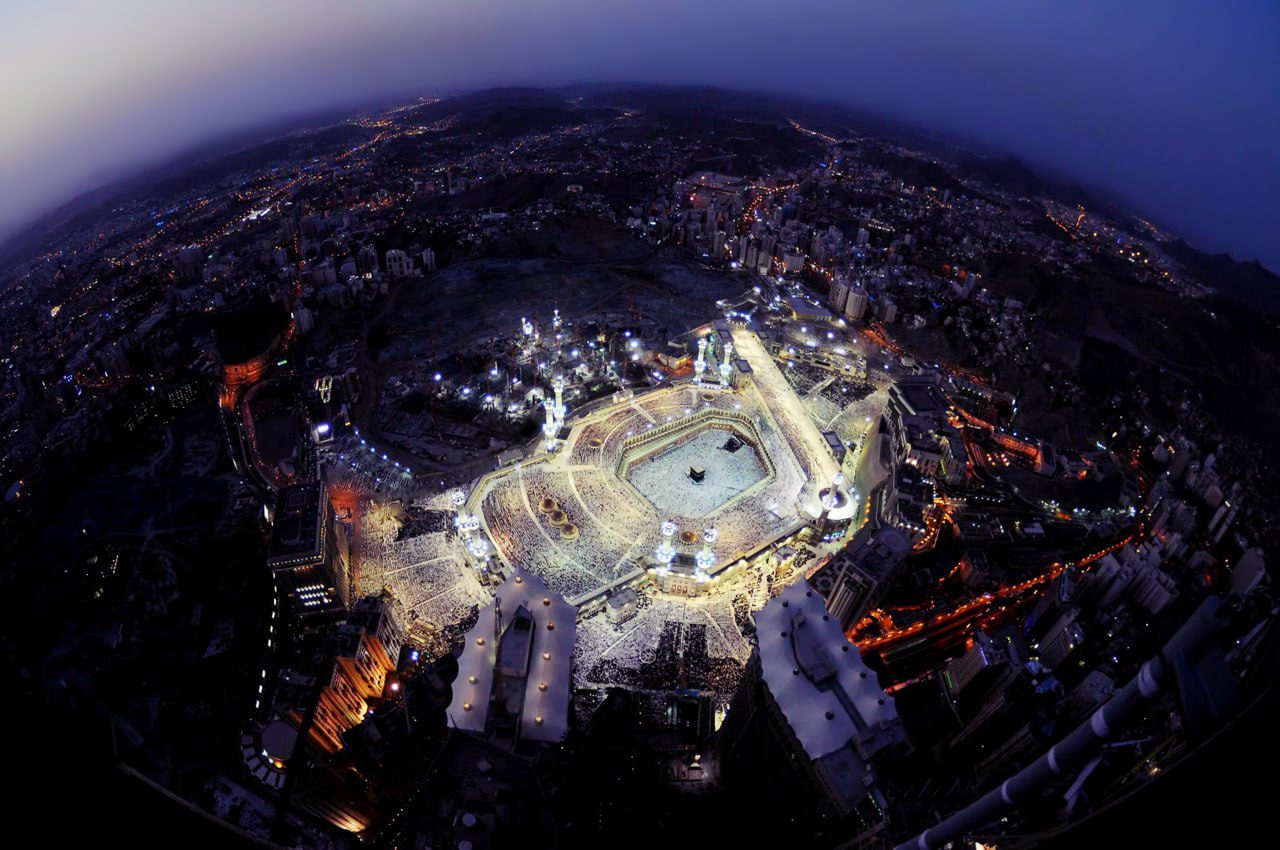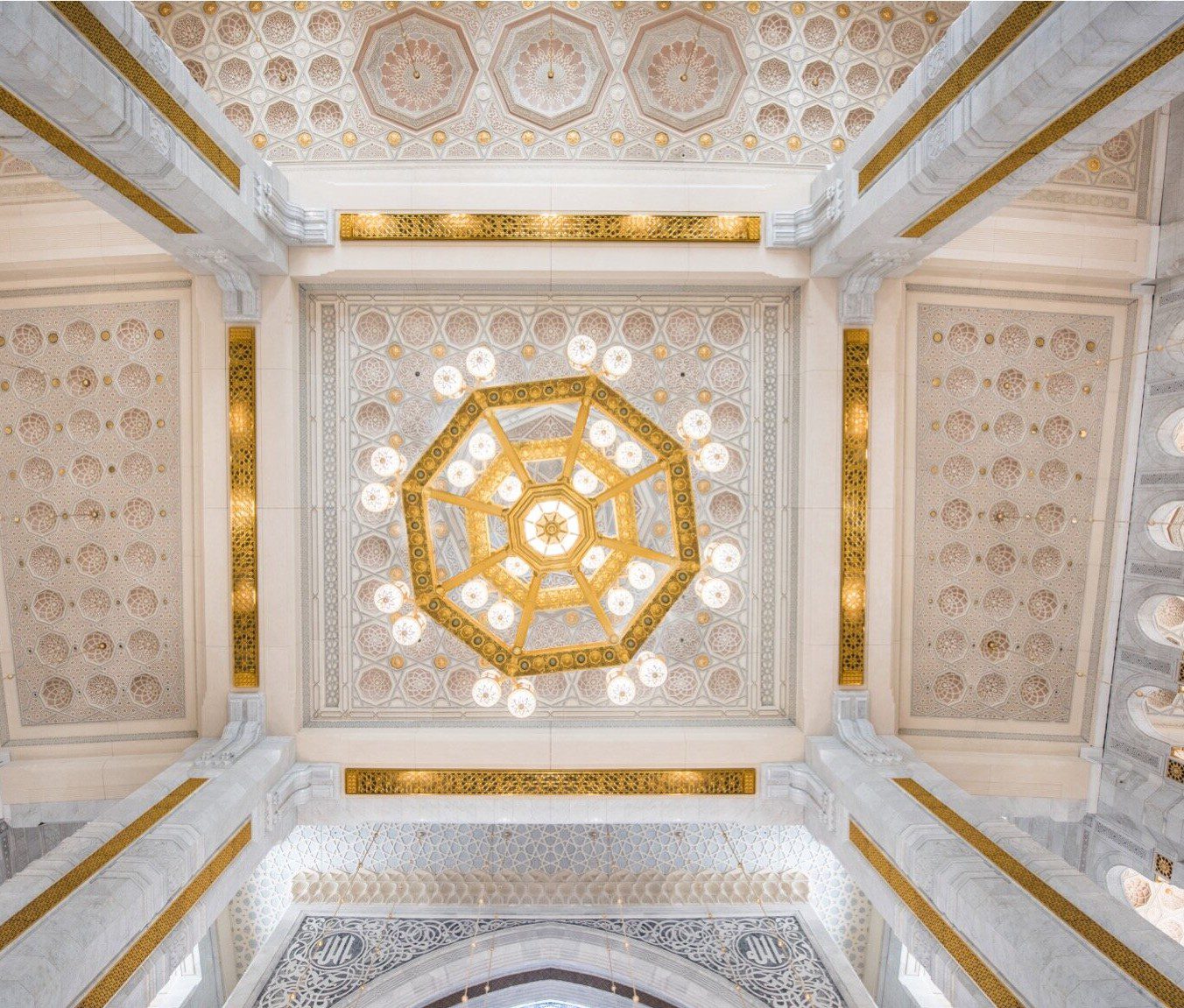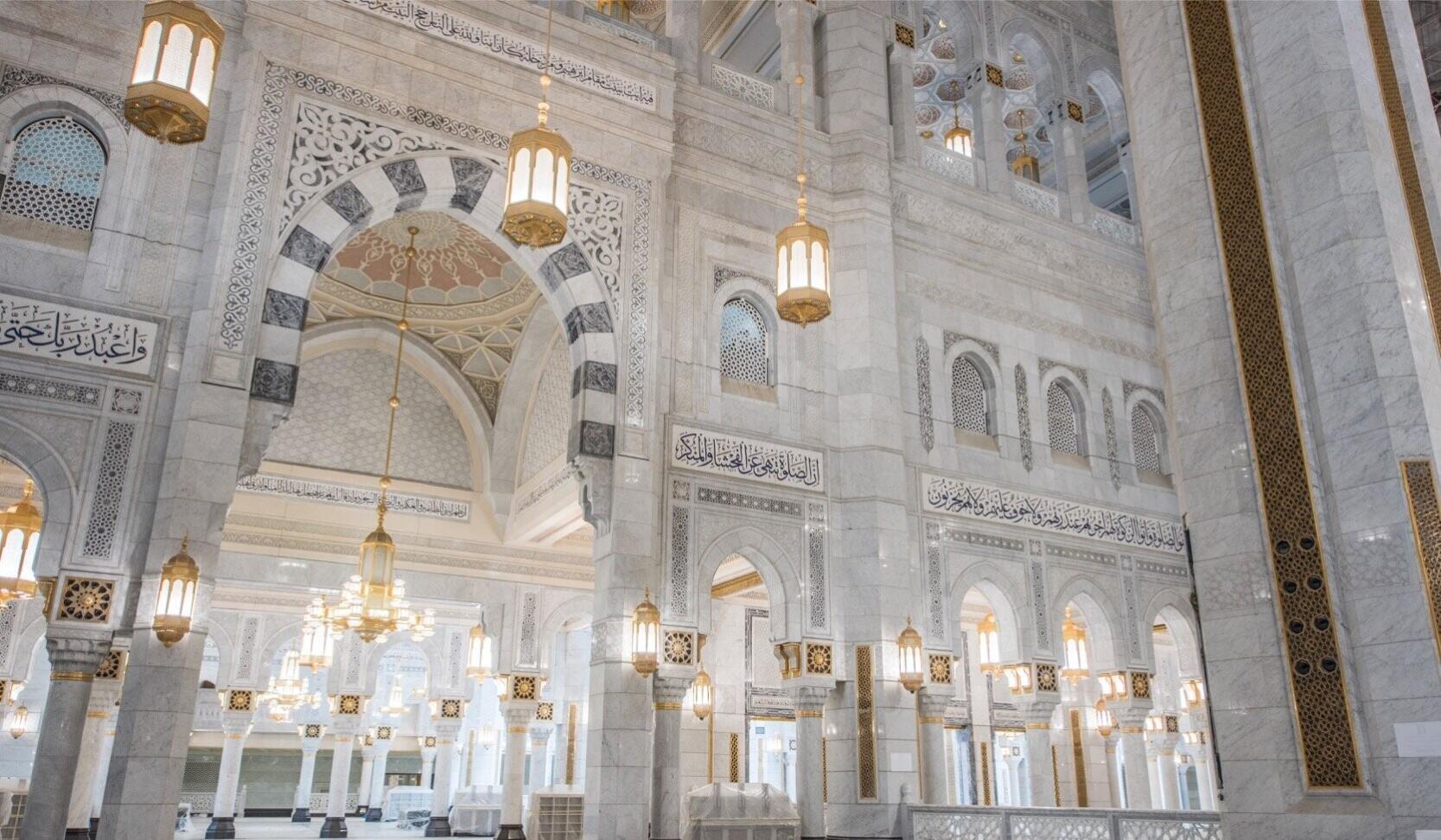Many people fall into the trap of treating ḥajj as a holiday. They arrive with a tourist mindset, focused on comforts, taking pictures and sightseeing, rather than internalising the awe, sanctity and spiritual intensity of ḥajj. This shift in perspective can erode the essence of ḥajj, turning sacred rites into mere rituals devoid of meaning.
1. Don’t Let Social Media Ruin Your Hajj
Try to delete all social media apps before you embark on your journey. Don’t assume you won’t be tempted. Shayṭān will lure you in with the promise of doing a good deed, but before you know it, you’ll be scrolling mindlessly, comparing your experience to others, or seeking validation for your worship. Without realising it, your sincerity may begin to slip. It’s simply not worth the risk.
2. Don’t Treat Hajj as a Photoshoot
Ḥajj is a journey that is meant to be experienced, not photographed. Every step, every duʿā’ and every moment of worship is designed to transform your heart and draw you closer to Allah.
Don’t trade these once-in-a-lifetime experiences for selfies, live streams, or curated posts. When you’re busy posing for the camera and focusing on taking the perfect shot, you miss the essence of ḥajj: humility, presence, and a deep connection with your Lord. Don’t let this spoil your ḥajj as these moments will never return. Live in the moment and truly experience your ḥajj without allowing your phone to distract you.
Capture each moment in your heart, not on your phone or feed. Whenever you feel tempted, as there will be people around you taking snaps, ask yourself: Is the posing, flashes, videoing and snapping really reflective of the heart of a pilgrim who fears his sins and is coming desperately to Allah, begging for a clean slate?
You may feel pressured to ‘share’ everything on social media, including your good deeds. This may lead you to doing good for others instead of Allah. It can also lead to self-admiration and pride, because the constant validation and attention received through likes and comments, results in an inflated sense of self-importance and a sense of superiority over others.
3. Don’t Sin in the Blessed Lands
Allah ﷻ says, “… And whoever intends to deviate by doing wrong in it, We will cause them to taste a painful punishment” (22:25). In this āyah, Allah ﷻ warns of a severe punishment even for merely intending to commit wrongdoing in the sacred places.
Ibn ʿAbbās (raḍiy Allāhu ʿanhu) said, “Committing seventy sins in Rukiyah (a place between Makkah and Ṭā’if) is better than committing a single sin in Makkah.”
Therefore, to protect yourself from sins, ensure you:
- Lower your gaze.
- Don’t harm another believer.
- Stay constantly engaged in dhikr, even while walking or waiting. Keep a tasbīḥ in your hand as a reminder.
4. Don’t Waste Time
Every moment in hajj is precious. Every minute is an opportunity to become closer to Allah and seek His forgiveness. This truly is a once-in-a-lifetime opportunity, so seize every second, and do not waste it.
Don’t waste your time wandering through malls or chilling in cafes. Even during moments of waiting, whether in a queue or a lift, resist the urge to scroll through your phone or engage in idle talk. Instead, fill those moments with dhikr or Qur’an recitation. Keep a tasbīḥ or muṣḥaf with you at all times, so there’s no excuse not to stay connected to the remembrance of Allah.
If you plan to buy gifts for family and friends, do so with the intention of bringing joy to their hearts. But be mindful and don’t let it consume too much of your time. Set aside a few hours on a single day, ideally after ḥajj is over, and get it done efficiently. Your time in ḥajj is far too valuable to waste it in shopping.
5. Don’t Be Stingy
Every penny you spend on this journey will be generously rewarded by Allah, so don’t hold back. Be open-hearted and selfless. If someone needs money, give without hesitation. If they need space, make room for them. Don’t let Shayṭān take hold of your heart and make you stingy with others.
Likewise, despite any exploitation by governments and tour groups, don’t complain or feel upset about the money you spend on ḥajj. Remember: this is money spent in the path of Allah. Intend it solely for His pleasure, and you will find it multiplied in reward.
6. Don’t Aid Genocide
Ensure that any goods you buy or any restaurants you eat from are not brands who have either directly or indirectly support genocide e.g. the settler colonial state Israel. Your money and anything you consume should never be tainted with the blood of your brothers and sisters.
Allah ﷻ says:
وَتَعَاوَنُوْا عَلَى الْبِرِّ وَالتَّقْوَىٰ وَلَا تَعَاوَنُوْا عَلَى الْإِثْمِ وَالْعُدْوَٰنِ وَاتَّقُوْا اللّٰهَ إِنَّ اللّٰهَ شَدِيْدُ الْعِقَابِ
“Cooperate with one another in goodness and righteousness, and do not cooperate in sin and transgression. And be mindful of Allah. Surely Allah is severe in punishment” (5:2).
7. Don’t Think Highly of Yourself
As you increase in worshipping Allah in ḥajj, don’t look down on others who may not be worshipping Allah as much. Don’t think you are better than them. Be careful of falling into the trap of ʿujb. ʿUjb refers to feeling pleased with your own accomplishments. This stems from thinking too highly of yourself, being ignorant of your own nature and faults; whilst failing to recognise who Allah is, and the rights He has over His servants.
Ibn al-Qayyim (raḥimahullāh) writes that when this occurs, “It gives rise to conceit (ʿujb), pride, and such afflictions that are worse than the major external sins such as zinā, drinking alcohol, and fleeing from the battlefield etc.”
8. Don’t Argue or Get Frustrated
For those accustomed to relative law and order, it can be easy to feel frustrated with certain systems that may seem disorganised or unfamiliar.
During ḥajj, you may encounter behaviours that differ from your cultural norms, such as people not queuing or not following rules. Rather than becoming frustrated, be humble and remind yourself that every system and society has its own strengths and weaknesses. Focus on the positives, and overlook the flaws or inconsistencies in both systems and people.
At times, your patience may be tested. Someone might even push you out of a spot you’ve been occupying for hours, leaving you without sufficient space to pray. In those moments, remain calm. Do not let anger ruin your ḥajj. Instead, turn your focus to silent dhikr or ṣalawāt, and walk away if needed. If you witness two people arguing, begin reciting ṣalawāt aloud, and inshāAllah, this will remind them to stop.
Shayṭān is relentless in his attempts to corrupt a person’s ḥajj and rob them of its reward. He employs countless tactics and subtle strategies, beginning from the moment a person sets out on their journey and continuing through every stage and ritual of the pilgrimage. Don’t let him get to you.
“There is no group of pilgrims setting out for Makkah except that Shayṭān prepares a force against them equal to their number.” – Mujāhid (raḥimahullāh)
9. Don’t Complain
Unfortunately, we live in an era of TripAdvisor, where complaining under the guise of reviewing has become the norm. In doing so, we often overlook the immense blessings right in front of us. We feel entitled to luxury and comfort, but ḥajj is not about indulgence. It is a journey of spiritual connection with Allah. Ḥajj is a tremendous blessing, so don’t spoil it with complaints.
Whatever hardship comes your way, see it as part of your journey to earn the love of Allah. As long as you gain the love of your Beloved, every difficulty along the way becomes trivial.
The Prophet ﷺ embodied humility and simplicity in ḥajj. He took a single animal with him to serve both as his mount and to carry his belongings, whilst others around him took two. He used an old saddle and wore a cloak that was worth four dirhams or less.
Reflect: Think about ḥajj just 100 years ago: no AC, no fancy hotels, limited food, and no air-conditioned buses. Today, we enjoy so many comforts, yet we still find reasons to complain. Remember: ḥajj is a journey of simplicity and shukr (gratitude).
Tip: If your meal is delayed or missing, or the AC isn’t working, don’t complain, “I paid £10k for this.” Instead, ask yourself: “When was the last time I truly went without a proper meal? Alḥamdulillah for every blessing.” Let these challenges become moments of spiritual reflection and a means of drawing nearer to Allah.
Shift your perspective today. Be positive and grateful, and you’ll transform your ḥajj. Whenever you feel like complaining, pause and count your blessings. And make this promise to yourself: “I will not complain — not even once on this trip.”
Ḥajj is all about your perspective. Be positive and don’t be negative.
10. Don’t Sweat the Small Stuff
Don’t sweat over the small stuff or lose your hair over the minute fiqh details of ḥajj. Ḥajj is about sincerity and submission. Stay focused on the bigger picture.
The school of ḥajj teaches us that this dīn is built on ease and mercy. It does not overburden or cause hardship to its followers. During the farewell ḥajj of the Prophet ﷺ, we see many examples of this. On the day of Naḥr, a Companion (raḍiy Allāhu ʿanhu) asked the Prophet ﷺ, “I shaved my head before the sacrifice.” The Prophet ﷺ told him, “Sacrifice (now)! There is no harm.” Another Companion (raḍiy Allāhu ʿanhu) asked, “I slaughtered (the animal) before stoning.” He ﷺ replied once again, “Stone (now)! There is no harm” (Bukharī).
From its foundation, ḥajj is based on istīṭāʿah: it is only obligatory for those who are able. Even its obligations are surrounded by mercy: if a duty can’t be fulfilled due to a valid reason or has been unintentionally missed out, there’s no sin, just compensation in most cases.
Don’t panic if you make a mistake or are unsure about something. Consult a scholar who will be able to guide you.
Act: This spirit of mercy isn’t just for ḥajj; it should guide how you live, plan, and treat ourselves and others. Be kind and easygoing. Let moderation and compassion shape your family life, your work, and your dealings with others.

